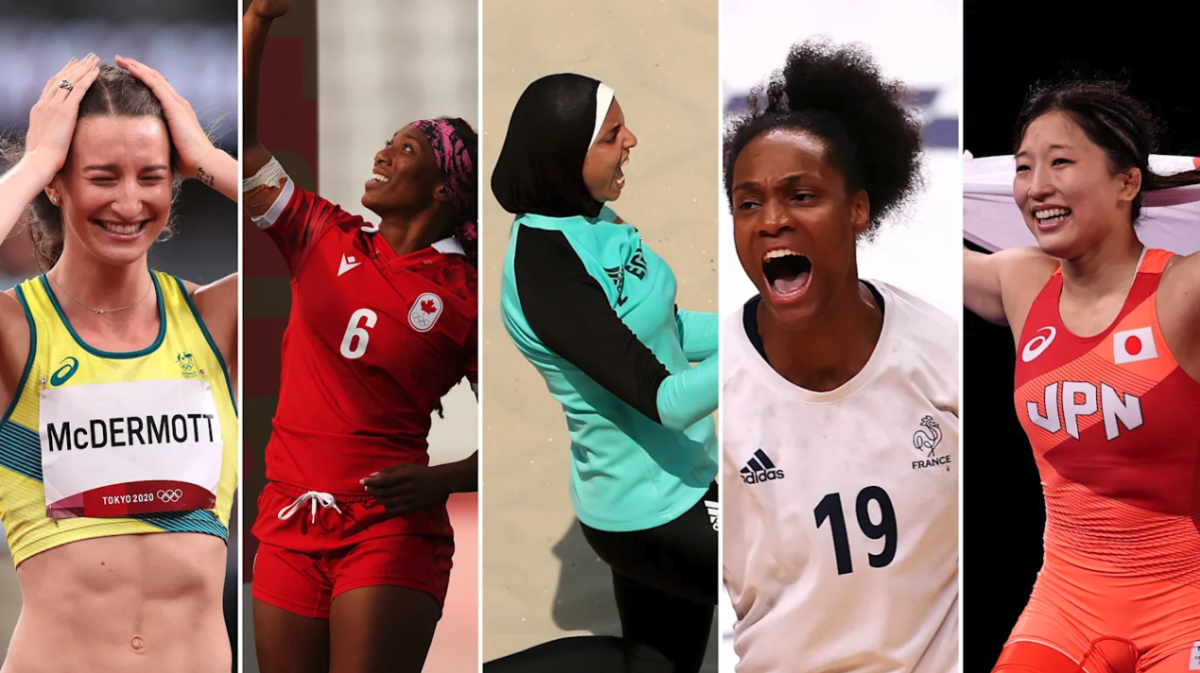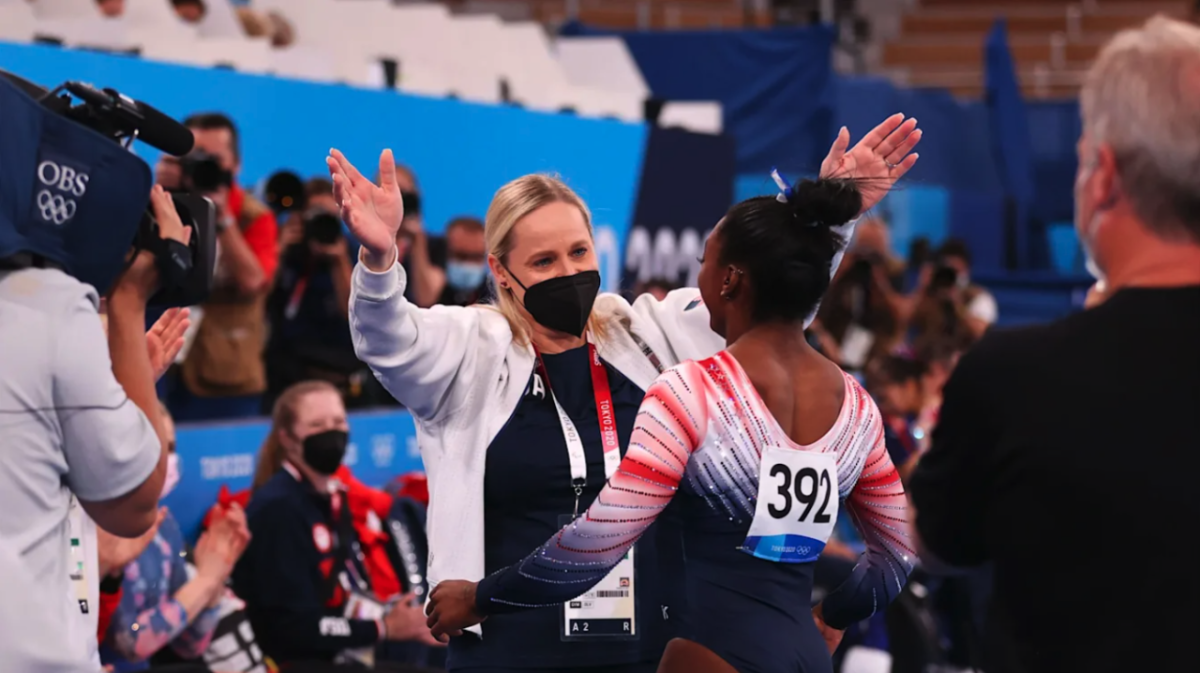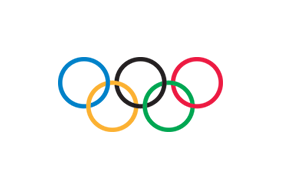#GenderEqualOlympics: Celebrating Full Gender Parity on the Field of Play at Paris 2024
Published 03-15-24
Submitted by International Olympic Committee
International Olympic Committee news
Ahead of International Women’s Day on 8 March, the International Olympic Committee (IOC) is celebrating a monumental achievement set to be reached at the upcoming Olympic Games Paris 2024: The IOC has distributed quota places equally to female and male athletes – 50:50. For the first time in Olympic history, there will be full gender parity on the field of play.
“We are about to celebrate one of the most important moments in the history of women at the Olympic Games, and in sport overall,” said IOC President Thomas Bach.
Over the years, the IOC’s commitment to gender equality has led the Olympic Movement to steadily increase the number of female athletes at the Olympic Games. Totalling just 2.2 per cent of the participants at the Olympic Games Paris 1900 when women competed for the first time, the number gradually rose, picking up the pace as of Los Angeles 1984, at 23 per cent; 44 per cent at London 2012; and 48 per cent at Tokyo 2020.

Creating equal opportunities for female and male athletes
Achieving gender equality took strength, perseverance, leadership and courage. “We are looking forward to Paris 2024, where we will see the results of the enormous efforts made by the Olympic Movement and female trailblazers come to life. This is our contribution to a more gender-equal world,” President Bach added.
Other key initiatives delivered in coordination with International Sports Federations (IFs) and National Olympic Committees (NOCs) have led to equal opportunities for female and male athletes to take part in the Olympic Games, including:
- a more gender-balanced sports programme, with 28 out of 32 sports fully gender equal in Paris.
- a more gender-balanced number of medal events, with the Paris 2024 schedule comprising 152 women’s events, 157 men’s events and 20 mixed-gender events.
This means that more than half of all the medal events at Paris 2024 will be open to female athletes.
In addition, the IOC has taken a number of important actions to increase the visibility of women at the Olympic Games. Since Tokyo 2020, each team has been encouraged to have one female and one male athlete jointly carry their flag at the Opening Ceremony.
At the same time, the IOC is encouraging all NOCs to include a minimum of one female and one male athlete in their delegation.
Significant efforts have also been made to ensure that women’s and men’s sports events are scheduled fairly over the 16 days of the Olympic Games. A gender- balanced schedule provides journalists with the opportunity to better balance their coverage, thus also making it easier for the next generation of female athletes to follow their role models in the media.
In Paris, for example, for the first time since its inclusion in the Olympic programme in 1984, the women's marathon will take place a day after the men's, and will conclude the athletics programme on 11 August during the Closing Ceremony. For many years, the men’s marathon has held this spot, as a culminating event to bring the Olympic fortnight to a close. Paris 2024 will see the order reversed, showcasing the performances of female athletes.

Keeping the momentum going to open more pathways for women
Paris will be a proud moment for the Olympic Movement – the culmination of hard work by the athletes, the IOC, IFs, NOCs and Games organisers. But this is not the finish line.
A number of IOC-led programmes are already in full force, and will continue to address the remaining gender gap in sport for all women – be it for girls looking for access to sport at grassroots level, female coaches aiming to reach elite level or women striving to reach leadership positions. The IOC and the Olympic Movement will continue their commitment to help create a more gender-equal world through sport.
“Our commitment to advancing gender equality does not end in Paris,” said the IOC President. “We will continue to open pathways for women and to work with our stakeholders, encouraging them to take the necessary steps to advance gender equality in their area of responsibility. The IOC will keep leading the way and using the power of sport to contribute to a more equal and inclusive society.”
###
The International Olympic Committee is a not-for-profit, civil, non-governmental, international organisation made up of volunteers which is committed to building a better world through sport. It redistributes more than 90 per cent of its income to the wider sporting movement, which means that every day the equivalent of USD 4.2 million goes to help athletes and sports organisations at all levels around the world.
###
For more information, please contact the IOC Media Relations Team:
Tel: +41 21 621 6000, email: pressoffice@olympic.org, or visit our web site at www.ioc.org.
Broadcast quality footage
The IOC Newsroom: https://newsroom.olympics.com/
Videos
YouTube: www.youtube.com/iocmedia
Photos
For an extensive selection of photos available shortly after each event, please follow us on Flickr. To request archive photos and footage, please contact our Images team at: images@olympic.org.
Social media
For up-to-the-minute information on the IOC and regular updates, please follow us on X and YouTube.

International Olympic Committee
International Olympic Committee
The International Olympic Committee (IOC) is a not-for-profit independent international organisation that is committed to building a better world through sport. It redistributes more than 90 per cent of its income to the wider sporting movement, which means that every day the equivalent of USD 3.4 million goes to help athletes and sports organisations at all levels around the world.
As the leader of the Olympic Movement, the IOC acts as a catalyst for collaboration between all parties of the Olympic family, from the National Olympic Committees (NOCs), the International Sports Federations (IFs), the athletes and the Organising Committees for the Olympic Games (OCOGs) to the Worldwide Olympic Partners, broadcast partners and United Nations (UN) agencies, and shepherds success through a wide range of programmes and projects. On this basis, it ensures the regular celebration of the Olympic Games, supports all affiliated member organisations of the Olympic Movement and strongly encourages, by appropriate means, the promotion of the Olympic values.
More from International Olympic Committee

